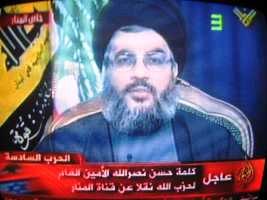Ivo Pukanic murder ‘the work of professionals’
 The assassination of Ivo Pukanic and Niko Franjic reveals the dangers of reporting on Croatia’s complex organised crime world, writes Goran Milakovic
The assassination of Ivo Pukanic and Niko Franjic reveals the dangers of reporting on Croatia’s complex organised crime world, writes Goran Milakovic
(more…)
 The assassination of Ivo Pukanic and Niko Franjic reveals the dangers of reporting on Croatia’s complex organised crime world, writes Goran Milakovic
The assassination of Ivo Pukanic and Niko Franjic reveals the dangers of reporting on Croatia’s complex organised crime world, writes Goran Milakovic
(more…)
An Arab-Israeli publisher has been ordered to stop importing Arabic-language books from Syria and Lebanon. Salah Abassi gave an interview to Israeli public radio on 11 August in which he stated that the Trade and Industry Ministry had ‘warned’ him that his actions were illegal. Abassi claims that Arabic translations of certain books such as the Harry Potter series can only be sourced from Lebanon or Syria. The ban is based on a decree issued under the British mandate, which forbids the importing of books from hostile nations.
Read more here

The decision to bar Norman Finkelstein from entering the country is a spectacular own goal for Israel, writes Daphna Baram
American Jewish academic Norman Finkelstein is a persona non grata in Israel. He found out about it when he attempted a visit in late May. Israeli security services, Shin Bet, arrested him at Ben Gurion Airport near Tel Aviv, interrogated him for a few hours, and deported him back to Amsterdam, where he came from. ‘It wasn’t a Belgian bed and breakfast but it wasn’t Auschwitz either,’ he told his friends. Despite such fine distinctions, he called them ‘Jewish Nazis’ to their faces, a typical tactless move which hardly improved the situation. Israeli security services say Finkelstein is a security risk. It is unlikely that he’ll be let into Israel again.
The Israeli broadsheet Ha’aretz, in a leader article attacking the Israeli decision, speculated that the alleged security hazard had to do with the fact that Finkelstein visited Hezbollah fighters and commanders in Lebanon after the Israeli invasion of 2006. Finkelstein did not creep into Lebanon under cover. He shared his positive impression of the people he met in articles he had written for various publications, including Ha’aretz. There’s nothing illegal in Finkelstein’s actions in Lebanon, but he made enemies in the Israeli establishment due to different reasons altogether. His book The Holocaust Industry described in chilling detail and without any Zionist sentimentality the way in which Israel has taken over the commemoration of Holocaust victims and incorporated the right to speak in their name and use their deaths in service of the state’s political, economic and propagandist interests. The grotesque picture of greed, cynicism, political craftsmanship and sheer chutzpah which he portrayed was made all the more embarrassing for Israel and its supporters abroad by the very fact that Finkelstein himself is the son of Holocaust survivors. In the macabre political discourse in which identifying who is more of a victim is the name of the game, his right to speak out was harder to challenge.
(more…)

Recent factional fighting in Beirut saw journalists come under attack, writes Charles Chuman
On 7 May 2008, Hezbollah and its allies in the Lebanese opposition began dismantling the authority of the Lebanese government. The army and police force could not respond to the situation, and the Lebanese opposition took control of Beirut’s streets.
Along with their systematic military takeover, Hezbollah and the opposition immediately began censoring the Lebanese media through direct intimidation, infrastructural destruction, and a disinformation campaign. Media analyst and former editor-in-chief of the Middle East Broadcasting Journal, Habib Battah, explains, ‘The media was a primary target in this campaign. It was one of the first things to be attacked as Hezbollah took control. They could have chosen other places to attack, but they chose the media.’
(more…)